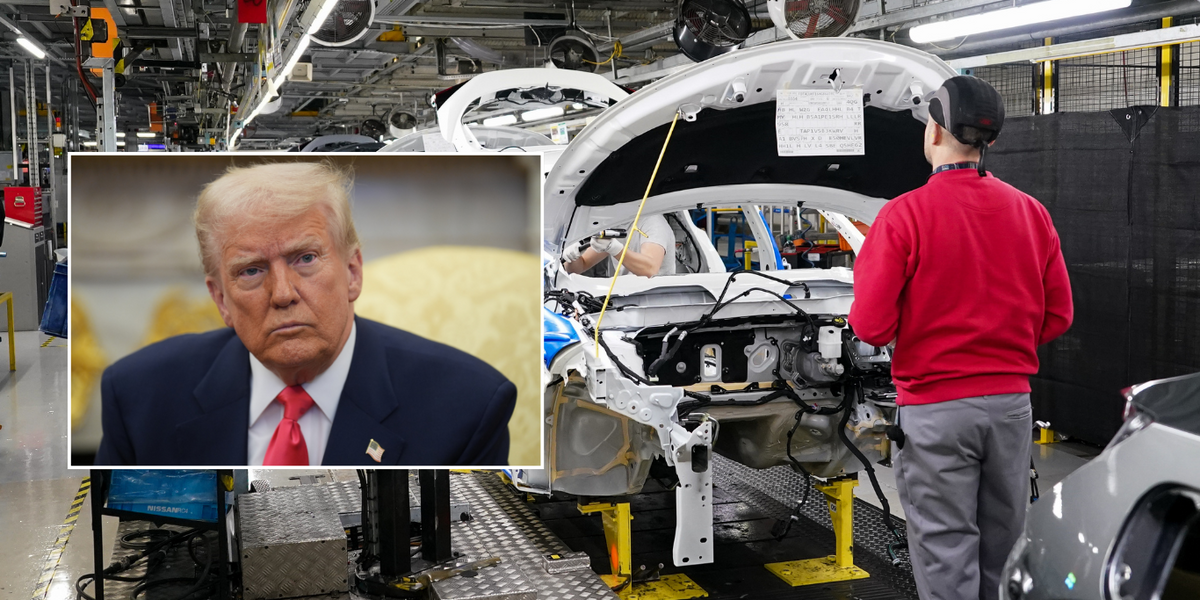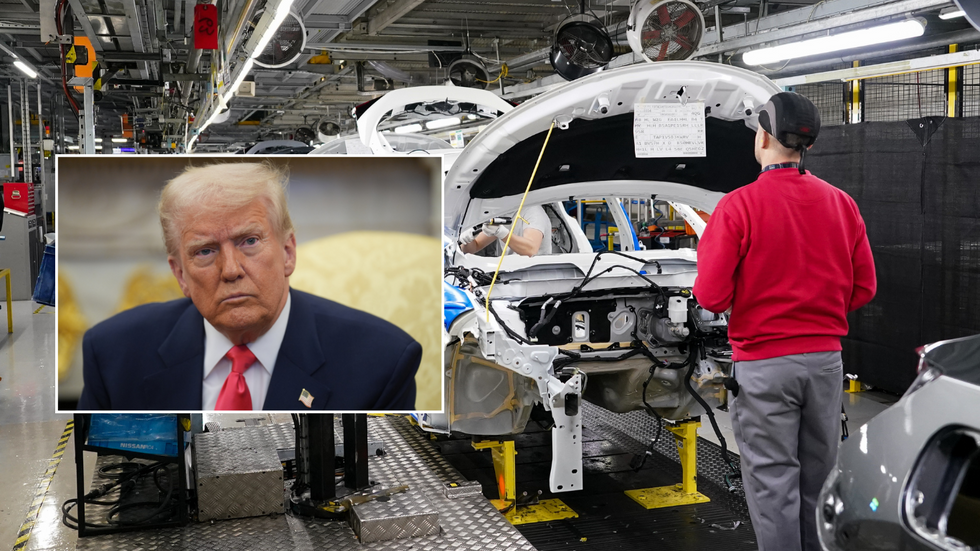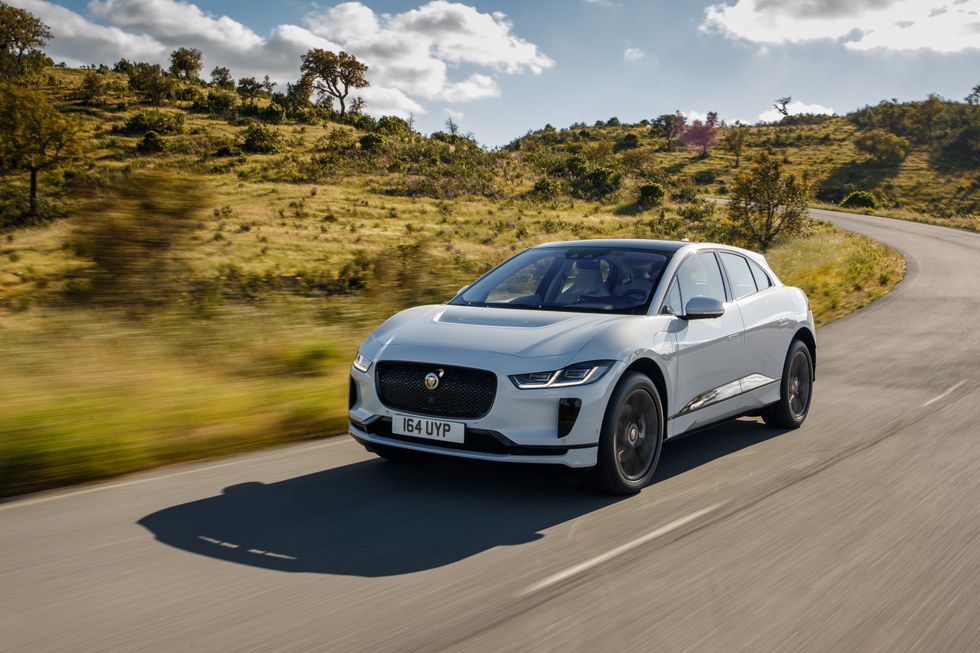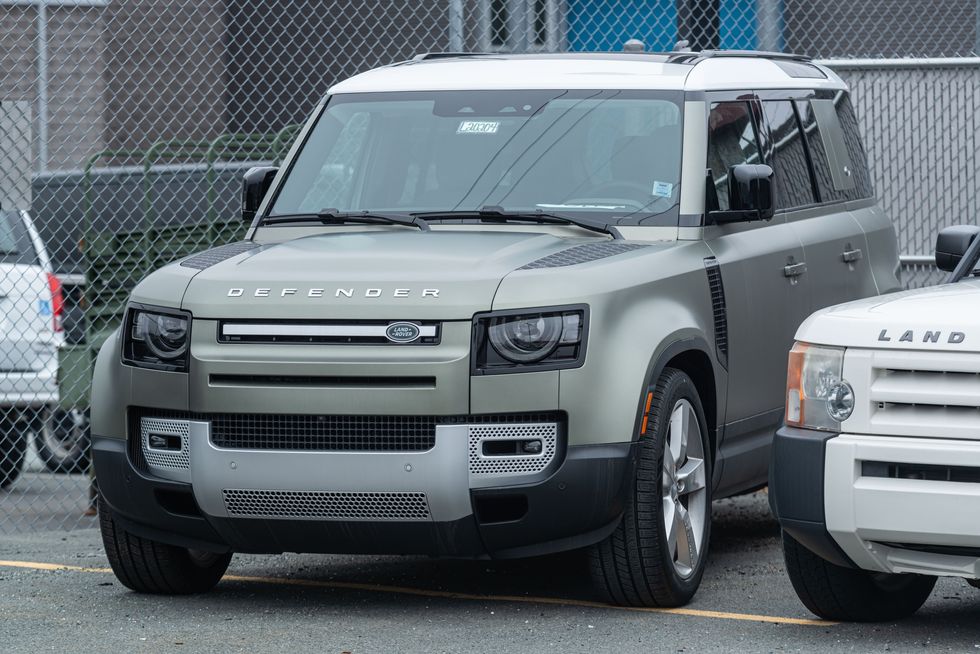



British carmaker Jaguar Land Rover has drastically reduced its estimated profits due to growing concerns over US tariffs on the automotive industry.
The revision comes after President Donald Trump imposed a 25 per cent tariff on all foreign-made vehicles sold in the US market.
The new earnings forecast has been slashed to between five and six per cent from its previous target of 10 per cent and also falls below JLR's reported 8.5 per cent margin for the previous fiscal year ended March 31.
The company, which generates more than a quarter of its sales from the US, temporarily halted shipments to the country following the tariff implementation.

Donald Trump imposed a 25 per cent tariff on all car imports to the US
PAJLR also warned it expects free cash flow to be close to zero in fiscal 2026. The announcement sent shares in JLR's Indian parent company, Tata Motors, tumbling by as much as 5.2 per cent in early trading on Monday.
JLR said it is now "re-allocating available units to accessible markets" to boost profits while it navigates the new trade landscape. The company continues to engage with both the US and UK Governments regarding a trade deal signed in May.
That agreement permits the UK to export 100,000 cars annually to the US at a reduced 10 per cent tariff, significantly below the 25 per cent levy imposed on other nations.
However, this provides only partial relief for JLR, as the company derives over a quarter of its sales from the American market.
Last month JLR chief executive Adrian Mardell told reporters: "We had and currently have no cause to build cars in the US at this time, but we cannot discount that it could be the case at some point."
The carmaker is also "assessing pricing actions" in the US to help offset the impact of the increased duties.
The UK-US trade deal offered limited protection for JLR's operations. While the company's Range Rover SUV lineup is manufactured in the UK and could benefit from the reduced tariff within the 100,000-vehicle quota, its popular Defender model faces a significant challenge.
The Defender is produced in Slovakia, a European Union member state that lacks a trade agreement with the Trump administration. This means Defender exports to the US face the full 25 per cent tariff burden.

JLR is one of the UK's main car manufacturers
JAGUARThis manufacturing split creates a complex situation for JLR, with the company now forced to navigate different tariff rates for its various models while competing against German rivals Mercedes-Benz and BMW, which have established local manufacturing operations in the US.
Analysts suggest JLR's wealthy customer base may be less sensitive to price increases resulting from the tariffs.
The timing of the tariff impact is particularly striking given JLR's recent financial performance. The company reported achieving record Defender sales of 115,404 units.
Commenting on the recent sales performance, Mardell shared: "JLR has ended the year with strong annual and quarterly earnings, including delivering our tenth consecutive profitable quarter and our net debt zero target."

The Defender is JLR's most popular model in the US, which is built in Slovakia
GETTY
He added: "We have achieved record sales of Defender, revealed the stunning Jaguar Type 00, and we are preparing to launch the wonderful Range Rover Electric."
Analysts have noted JLR may be somewhat insulated from the increased costs associated with the tariffs, thanks to a customer base that is unlikely to be deterred by higher prices. However, this provides only partial mitigation of the financial impact.
The company's vulnerability stems from its reliance on exports to serve the US market, which accounts for over a quarter of its global sales.
Without local production capabilities, JLR faces the full burden of import duties on vehicles manufactured in both the UK and Slovakia.
